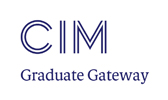Overview
Marketing stands on the cutting edge of those professions required to adapt to a constantly changing environment, and there is an increasing need for graduates in this area to have an in depth understanding of the role of digital marketing, data analytics and targeting. Our integrated Marketing with Advertising and Digital Communications degree has been designed to fit the study of marketing firmly into a social science context and to prepare students for work in a dynamic, data-driven, and increasingly online world.
The degree starts off with an introductory year into marketing and the digital world, which will equip students with the foundational knowledge they need to explore the discipline in-depth in subsequent years.
Our course equips you with the skills you need. You can apply your knowledge through consultancy projects via our Business Solutions Centre, or further enhance your employability with a year-long placement. You can enhance your employability further by undertaking a placement year. Based in the capital city, you will benefit from LSBU Business School’s links and connections.
Why Marketing at LSBU?
- heart
- Recent graduates have secured placements and roles at the following companies- InterEx Group, CABI, BOCCHI and Tropenao Media Group. Roles include Commercial Manager, Senior Digital Marketing Executive and Digital Marketer.
- star
- 96% of students on this course think that staff are good at explaining things (National Student Survey, 2024.) Highly commended for Outstanding Support for Students (Times Higher Education Awards, 2024.)
- puzzle-piece
- As part of the course, you’ll have the opportunity to gain work experience in a consultancy role with a British-based company.
- check-circle
- Professional accreditation – the course is accredited by the Chartered Institute of Marketing.
- bolt
- We support entrepreneurs – you can develop a ready-to-fund business plan or undertake consultancy as a final year marketing project.
- users
- Our graduates are currently working at major companies, including InterEx Group, WeAreWaterloo, BOCCHI and CABI.
| ModeFull-time | Duration4 year | Start dateSeptember | Application codeN50F | Application method UCAS |

Read Her StoryShoshanna embodies the spirit of ambition and innovation fostered by our institution.
Shoshanna Davis, BSc (Hons) Marketing with Digital
Watch our video to see how you can make yourself at home studying at LSBU.
Location
London South Bank University student union is located at 103 Borough Rd, London SE1 0AA.
If you are visiting our Southwark Campus, you may wish to use our downloadable campus map (PNG File 466 KB). For information on accessibility, see our DisabledGo access guides. See our location page for more details.
Entry Level Requirements
Need further information? Call us on 0800 923 8888 to discuss entry requirements.
In order to be considered for entry to the course(s) applicants will be required to have the following qualifications:
- A Level DD or:
- BTEC National Diploma MPP or:
- Access to HE qualifications with Pass or:
- Equivalent Level 3 qualifications worth 64 UCAS points.
- Applicants must hold 5 GCSEs A-C including English and Maths, or equivalent (reformed GCSEs grade 4 or above).
- We welcome equivalent qualifications from around the world.
We welcome equivalent qualifications from around the world.
English language qualifications for international students: IELTS score of 6.0 or Cambridge Proficiency or Advanced Grade C.
Choose your country
Select country here:
Missing English and Maths qualifications?
If you do not have the required English and Maths qualifications needed to satisfy the entry requirements for this programme, we have courses available at our partner College that you can take to upskill in these areas. Find out more at South Bank College.
Advanced entry
If you have already completed some studies at another university, we may be able to consider you for advanced entry. Please see our advanced entry page for more information.
United Kingdom
£9535
Tuition fees for home students
International
£16500
Tuition fees for international students
Tuition fees are subject to annual inflationary increases. Find out more about tuition fees for Undergraduate or Postgraduate courses.
-
Full-time
full-time
BSc (Hons) Marketing with Digital (with Foundation Year) (FT) - Year 1
UK fee: £5760 International fee: £16500 AOS/LSBU code: 5881 Session code: 1FS00 Total course fee: * The full amount is subject to fee increases, the total shown below is based on current fees.
UK: £34365 International: £66000 BSc (Hons) Marketing with Digital (with Foundation Year) (FT) - Year 2
UK fee: £9535 International fee: £16500 AOS/LSBU code: 5881 Session code: 2FS00 Total course fee: * The full amount is subject to fee increases, the total shown below is based on current fees.
UK: £34365 International: £66000 BSc (Hons) Marketing with Digital (with Foundation Year) (FT) - Year 3
UK fee: £9535 International fee: £16500 AOS/LSBU code: 5881 Session code: 3FS00 Total course fee: * The full amount is subject to fee increases, the total shown below is based on current fees.
UK: £34365 International: £66000 BSc (Hons) Marketing with Digital (with Foundation Year) (FT) - Year 4
UK fee: £9535 International fee: £16500 AOS/LSBU code: 5881 Session code: 4FS00 Total course fee: * The full amount is subject to fee increases, the total shown below is based on current fees.
UK: £34365 International: £66000
For more information, including how and when to pay, see our fees and funding section for undergraduate students.
Please check your fee status and whether you are considered a Home, EU or International student for fee-paying purposes and for our regulatory returns, by reading the UKCISA regulations.
See our Tuition Fees Regulations (PDF File 391 KB) and Refund Policy (PDF File 775 KB).
Possible fee changes
The University reserves the right to increase its fees in line with changes to legislation, regulation and any government guidance or decisions.
The fees for international students are reviewed annually and the University reserves the right to increase the tuition fees in line with the RPIX measure of inflation up to 4 per cent.
Scholarships
We offer several types of fee reduction through our scholarships and bursaries. Find the full list and other useful information on our scholarships page.
International students
The course is not currently open to international students.
International (non Home) applicants should follow our international how to apply guide.
Home and International entry
| Mode Full-time | Duration 4 year | Start date September | Application code N50F | Application method UCAS |
Accommodation
Once we have made you an offer, you can apply for accommodation. You can rent from LSBU and you’ll deal directly with the university, not third party providers. That means we can guarantee you options to suit all budgets, with clear tenancy agreements and all-inclusive rents that include insurance for your personal belongings, internet access in each bedroom and on-site laundry facilities.
Or, if you’d rather rent privately, we can give you a list of landlords – just ask our Accommodation Service.
Read more about applying for accommodation at LSBU.
Finance
You don't need to wait for a confirmed place on a course to start applying for student finance. Read how to pay your fees as an undergraduate student.
Prepare to start
Applicant events
After you’ve received your offer we’ll send you emails about events we run to help you prepare for your course.
Enrolment
Before you start your course we’ll send you information on what you’ll need to do before you arrive and during your first few days on campus. You can read about the process on our Enrolment pages.
Whilst on this course, you will study a range of topics, including modules designed to give a solid foundation in current business practice as well as contemporary marketing theory and practice.
All modules are designed to include practical application elements as well as theoretical concepts. You are introduced to practical skills including digital campaign planning, brand analysis, communications and advertising planning, marketing research techniques and uses of digital marketing technology such as Hootsuite and Salesforce.
Year 1
- Apps and Applications This module will introduce students to software that can be used in the academic and business environment to support their IT confidence, enhance their IT proficiency and work together in online spaces. The students will develop practical skills enabling them to use software to communicate effectively and collect, manipulate and present information. Further, students should develop a confidence with learning and using new software, preparing them for the changing business environment, and the increasing use of virtual spaces and emerging software.
- Academic Development Academic writing is the foundation upon which student success is built. This module will explore the contextual nature of communication, comparing the features of spoken language with the written word. Further, it will explain the key steps that students will need to undertake to complete a persuasive piece of academic writing, providing students with guidance on how to express opinions and form logical academic arguments underpinned by research.
- Business Communication and Culture This module supports students in their personal and academic development as they transition into business education, ensuring familiarisation with academic processes and resources, and through the development of sustainable communication and effective coaching skills. Furthermore it facilitates the student’s self-development, through the exploration of their core values and beliefs, enabling them to develop their social and cultural capital through individual and group work, networking, social activity, and exposure to the current business environment and the good coaching practice within organisational culture.
- Problem-solving for business This module introduces students to the basic concepts of business research. Students will apply introductory research skills to a real-world problem in the shape of a local project, which will require students to undertake primary and secondary research into an issue facing a local organisation such as a community service, local charity or small business. The students will select a project as a team and then discuss the research problems with the tutor before starting the project. The students will evaluate outcomes of the research undertaken and provide recommendations for tfhe business. The aim of this module is to expose students to the research process so, in instances where companies pull out, students can complete their research using secondary data and addressing the issues they faced in their methodology section. The students will also conduct a short programme of coaching.
- Data-handing for Business and Marketing This module teaches the fundamental statistical and mathematical tools that are the principles of decision-making. From a data perspective, the course provides an idea of infrastructures and types of data. It will provide students with the skills to derive insights from a pool of data for decision making. This will create the appropriate ground for modules on BA Business Management and BA Marketing Extended Degrees. For example, one can get the principles to manage financial data, the business model of e-companies and the fundamentals to process secondary data.
- Introduction to Marketing The module introduces the fundamental topics in marketing. It familiarises students with the basic theories and practices of marketing, and provides students with a foundation in the subject of marketing.
- Principles of Marketing
An overview of the marketing concept designed to prepare students for the specialist marketing modules studied later in the course. - Marketing in a Digital World
An introduction to digital marketing including key digital marketing technologies. - Finance and the Economy
Designed for non finance students, the module offers insight into the role of finance from a general business perspective. - The Discovery Project
An introduction to business management from an applied perspective. - Management and Organisations
Covers management theory and practice and offers insight into organisational behaviour. - Data for Decision Making
An introduction to data, its uses and its key role in organisational successes. - Understanding the Consumer
An in depth look at consumer behaviour theory, its role in marketing decisions and how it is used in practice. - Your Marketing Career
Centred around employability, the module covers key skills necessary for graduate marketing employment. - Integrated Contemporary Communications
Fusing both practice and theory, the module examines marketing communications from an integrated campaign perspective. - Marketing Research and Digital Analysis
A comprehensive introduction to marketing research, data, big data analysis and the role of these within a marketing context. - Marketing the Customer Experience
Understand the customer journey with a focus on online experience and its impact on overall performance. - The Digital Economy
- Media Relations
- Fundamentals of Project Management
- Global Marketing in the Digital Era
Theory and practice related to marketing across international boundaries. - Managing Products and Brands
This module covers practical and theoretical concepts related to two of the most important areas of marketing, product and brand management. - Marketing and Digital Strategy and Planning
This module links all the previous topics studied across all levels and involves the development of an effective overall marketing strategy for a live case. - Applied Project
Running across two semesters, the project gives students the opportunity to explore an area of marketing of their choosing in more depth. - Strategic Marketing Channels
- Social Responsibility and Ethics
- Contemporary Issues in Digital Marketing
- Volunteering
Year 2
Year 3
Plus one option from:
Year 4
Plus one option from:
Careers
Employability Service
We are University of the Year for Graduate Employment for the second year in a row - The Times and Sunday Times Good University Guide 2018, 2019.
At LSBU, we want to set you up for a successful career. During your studies – and for two years after you graduate – you’ll have access to our Employability Service, which includes:
- An online board where you can see a wide range of placements: part-time, full-time or voluntary. You can also drop in to see our Job Shop advisers, who are always available to help you take the next step in your search.
- Our Careers Gym offering group workshops on CVs, interview techniques and finding work experience, as well as regular presentations from employers across a range of sectors.
Our Student Enterprise team can also help you start your own business and develop valuable entrepreneurial skills.
Our integrated foundation year provides you with a solid foundation in academic skills and business-related disciplines; instilling knowledge and practical skills that will prepare you for an LSBU Business School degree which can add value to any company or organisation. You will specifically develop practical and research skills in the Problem Solving for Business module but all modules will require you to engage in practical tasks which will enhance your employability.
LSBU Business School is an esteemed member institution of the Business Graduates Association (BGA), an international membership and quality assurance body of world-leading and high-potential Business Schools who share a commitment for responsible management practices and lifelong learning, and are looking to provide positive impact on their students, communities, and the economy as a whole. BGA is the sister brand to the Association of MBAs (AMBA), the world's impartial authority on postgraduate management education.
As a BGA member institution, students of LSBU Business School are able to access BGA's individual membership, which offers a range of tools and resources designed to support the professional and personal development of business students and graduates, free of charge. This includes CV building services, a job search function, skill assessments, thought-leadership, partner discounts and much more.
Teaching and Assessment
The academic team is made up of a range of lecturers from research, industry and charity backgrounds with subject specialisms in Economics, Enterprise, Management Information Systems, Marketing, and Mathematics.
Where possible, guest speakers from business and academia will bring specialisms and real world contextualisation. Interactive seminars and workshops will support the lectures and have a strong focus on small group activities and application of knowledge to business case studies and real life. Examples of activities students will engage with during seminars are: question practice and case study analysis to reinforce and contextualise key lecture topics, debate and discussion. Processes and techniques are demonstrated during lectures and are then developed and applied to questions and exercises during seminars to reinforce learning.
Examples of the range of assessment types are: Business Reports, Case Study Analysis, Closed Book Exam, Multiple choice test, Individual Reflections, Essays, E-poster, Social Media Presence Development, Individual Portfolio, Excel Assignment, Coaching Diary, and Group Presentation.
Personal Tutoring
Personal tutoring and pastoral care will be provided through a dedicated team of personal tutors. As part of the Academic Development, students will meet in groups to discuss and identify their own individual SMART objectives related to the current course of study and career objectives. From this they will then work alongside their Personal Tutor to develop the Personal Development Plan for the coming semester and to be developed in all modules and finalised in the Problem Solving for Business module.
At the end of Semester 1 / beginning of Semester 2 students will meet to review their semester one results and develop their plan. In Semester 2 the personal development will focus on extra curricula opportunities for students to increase student engagement. The division will work closely with support services and societies and the student to ensure opportunities for personal development are supported.




